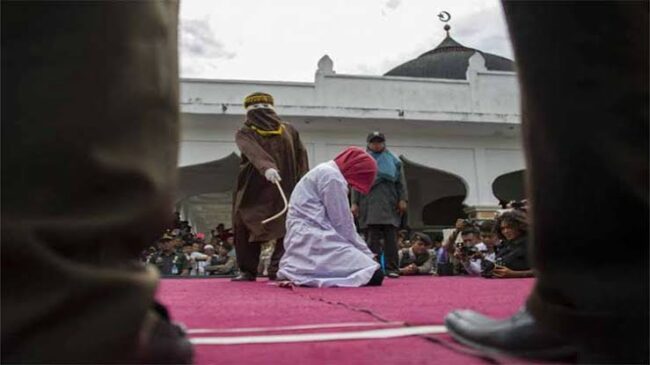
A 42-year-old construction worker in Malaysia’s conservative Terengganu state was publicly caned inside a mosque on Friday after being convicted by a Sharia court for the offence of khalwat—spending time alone with a woman who was neither his wife nor relative.
The man, dressed in an orange prison jumpsuit, was escorted to the mosque in a prison van following Friday prayers. Before an audience of about 90 people, he received six lashes in what marked the first instance of a Sharia court-ordered caning carried out in a mosque, according to Malaysia’s Bernama news agency.
Khalwat is considered a violation of Islamic law, and while Sharia court-ordered canings are rare, the public execution of this punishment highlights Terengganu’s strict enforcement of Islamic rules.
Public Reactions and Criticism
The Malaysian Bar Association voiced its “profound concern” earlier this week, condemning the punishment as a violation of human dignity. “Such punishments strip individuals of their dignity,” the association stated.
Human rights groups also criticized the act. The Human Rights Commission of Malaysia remarked, “Punishments that inflict physical violence and public humiliation have no place in a modern justice system.”
Despite the backlash, some locals supported the public flogging, citing it as a moral deterrent. “Valentine’s Day, New Year’s, there are many opportunities for young people to engage in inappropriate behaviour,” said 37-year-old Mohd Sabri Muhammad, a spectator at the event.
Malaysia’s Dual Legal System
Malaysia operates a dual legal system: civil courts handle general matters, while Islamic courts oversee specific issues for Muslim citizens, including moral and religious offences.
Public caning for such offences is not unprecedented. In 2018, two women convicted of having sexual relations were caned in front of more than 100 spectators in an Islamic court.
Critics argue that the practice, typically conducted over clothing, not only inflicts physical pain but also aims to publicly humiliate the recipient, raising questions about its place in a modern society.







